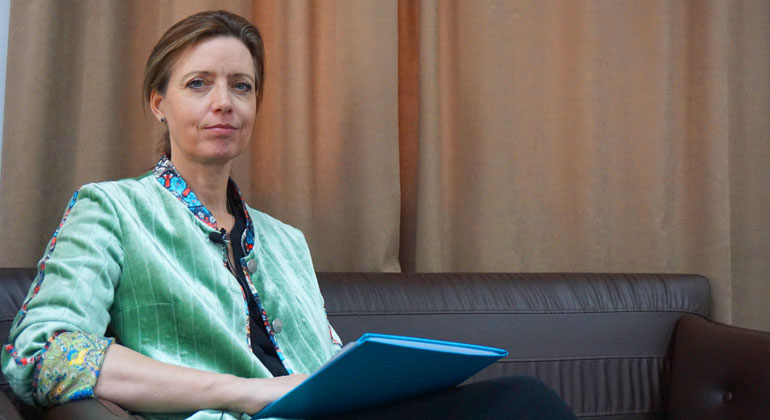ASTANA—The United Nations (UN) expressed appreciation to Kazakhstan on April 15 for enacting legislation to protect victims of domestic violence, reported the UN news service.

UN Resident Coordinator in Kazakhstan Michaela Friberg-Storey. Photo credit: UN in Kazakhstan
“This is a significant advancement in eradicating gender-based violence,” said UN Resident Coordinator for Kazakhstan Michaela Friberg-Storey.
On April 15, President of Kazakhstan Kassym-Jomart Tokayev signed a law amending penalties for violence against women and children.
In addition to criminalizing domestic abuse, the law introduces administrative accountability for bullying and cyberbullying of minors. It obliges educational institutions to notify law enforcement agencies of offenses involving children.
“The adoption of the law was preceded by a wide public campaign, caused, among other things, by a reaction to the former minister’s arrest on suspicion of killing his wife,” the UN news service writes.
The new law, according to Friberg-Storey, “underscores Kazakhstan’s commitment to human rights, especially the protection of women, children and vulnerable groups from domestic violence.”
By introducing criminal liability for domestic violence, Kazakhstan makes it clear that such behavior is unacceptable, and those responsible will be held accountable under the law, said the UN Resident Coordinator.
“This important step guarantees that victims of domestic violence have access to justice and support services to rebuild their lives, in addition to promoting gender equality,” Friberg-Storey said.
The UN encourages Kazakhstan to keep up its efforts to effectively implement and enforce this law, including raising awareness of domestic violence, training law enforcement and judicial officials, and establishing support mechanisms for abuse victims.
“This comprehensive approach is necessary to create a society in which everyone can live in their own homes without fear and violence,” Friberg-Storey said.
She reaffirmed the organization’s readiness to support Kazakhstan in its endeavors to eradicate gender-based violence and promote a culture of respect, equality and dignity for all its citizens.
